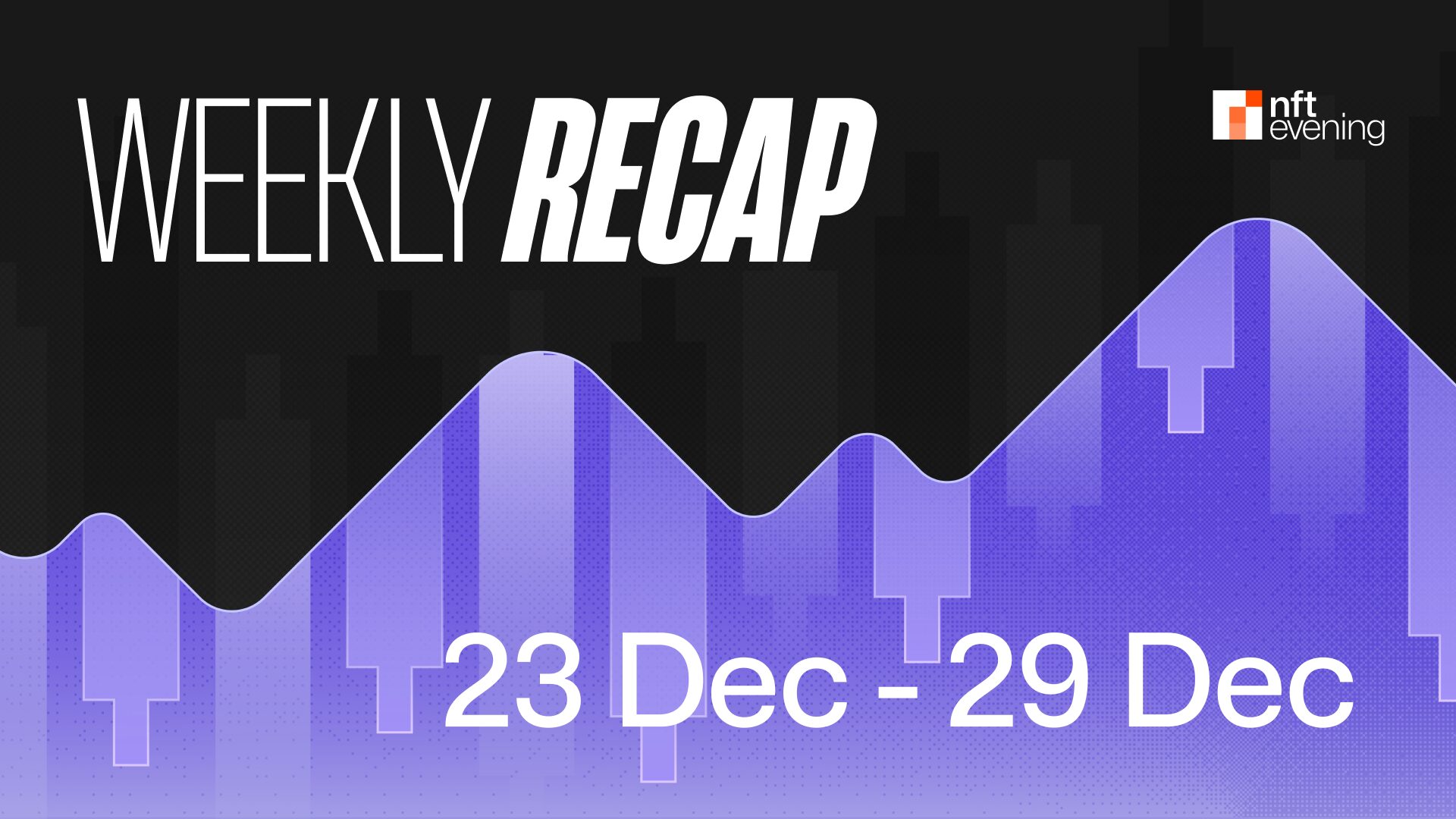Welcome to our weekly recap of the cryptocurrency and NFT markets for the week of December 23, 2024. Bitcoin's latest price movements have been predicting a possible pullback, as increased buying volume on Binance points to increased buying pressure. Meanwhile, daily cryptocurrency headlines shed light on Kyrgyzstan's declining mining tax revenue, showing how local regulations and global trends can affect production and market sentiment. In the NFT space, the news of the multi-million dollar carpet sale underscores ongoing challenges around fraud, even as other parts of the digital asset world, such as real-world asset (RWA) tokenization, gain momentum. Join us for a closer look at this week's top stories and insights shaping the crypto and NFT landscapes.
Bitcoin Outlook: Volume Buyer and Potential Return
This week's focus is on the buying volume of Bitcoin buyers, which is the lowest level on Binance According to CryptoQuant The taker buying volume data represents the total volume of purchases at the best available price, indicating that buyers are growing more aggressive.
This pattern usually indicates increased demand and, if sustained, could precede a price reversal. Although Bitcoin is below the $100,000 level it reached in early December, market watchers see similarities to previous bull cycles, such as the 2023 bull run, which followed a similar surge in buyer demand.
2024:
Source: TradingView
2023:
Source: TradingView
However, opinions differ on whether the market can repeat such explosive growth. Economic signals such as central bank policies and year-end tax considerations could still dampen momentum. However, the direction of bearer volume remains a key metric for traders eyeing a potential near-term bounce as Bitcoin clings to key support levels.
Cryptographic highlights and macro developments
Kyrgyzstan The latest budget report It showed a drastic decrease of more than 50% in the tax revenue of digital currency mining for 2024, which reached more than 46.6 million Kyrgyz. The slowdown comes despite higher overall cryptocurrency valuations, suggesting that a combination of local regulations and changing market conditions may drive miners elsewhere. Observers note that Kyrgyzstan's once-thriving mining scene has faced challenges such as rising energy costs and tougher competition, in line with a global trend of decentralized operations seeking favorable jurisdictions.
Meanwhile, U.S. Bitcoin ETFs turned the tide on Dec. 26, posting a remarkable inflow of $475.2 million after a four-day streak of outflows worth $1.5 billion. Market watchers see the change as a possible sign of returning investor confidence, although year-end trading volume significantly skews the data. Traders are predicting that Bitcoin and Ether will hit new all-time highs, with some bets pointing to potential altcoin ETF endorsements. Although these scenarios depend on regulatory developments and broader economic trends, the bullish sentiment suggests that many investors expect a great start to the year for cryptos.
NFT and Fraud: Legal Action Against Scams
In a major blow to fraudulent NFT schemes, the US Department of Justice announced Charges against two people It is said to be responsible for the $22 million carpet sweep involving several digital asset projects.
According to court documents, the young Californian reportedly lured investors with deceptive roadmaps and promises of long-term expansion into abandoning the plans after raising significant funds. Prosecutors cited Misleading statements, false ownership claims, and intimidation against those who tried to disclose their activities.
This high-profile case underscores the industry's growing crackdown on scams and the need to do due diligence before buying NFTs. While legitimate creators continue to thrive, bad actors are taking advantage of the hype and novelty of digital collections to lure unwary buyers, observers point out. These arrests are a reminder that investors should check the developer's credibility, tokonomics and implementation of the roadmap.
Real-world assets are being encrypted on the blockchain: coffee
One of the biggest revelations this week is the remarkable real-world development Asset tokenization It happened when Agridex facilitated its first on-chain coffee trade and deployed it on the Solana blockchain. Tiki Tonga Coffee, a UK-based brand, exports beans to South Africa, making payments in local currencies through near-instant transactions at a fraction of the usual cross-border costs. This shift away from traditional banking routes highlights the potential for simple and cost-effective business, particularly in the agricultural supply chain.
Beyond coffee, Agridex envisions deploying mechanisms similar to those used for livestock, wine and other high-value commodities, promising faster settlement and greater transparency. By combining blockchain technology with real goods, these platforms aim to reduce intermediaries, increase traceability and expand market opportunities for producers. If widely used, solutions like this could transform the way global trade works, empowering smaller players and increasing efficiency.
Final thoughts
From the volume of Bitcoin buyers hinting at a near-term recovery, to the decline in Kyrgyzstan's mining revenues and the rise of real-world asset tokenization, this week's cryptocurrency and NFT market updates paint a dynamic picture of challenges and innovations. does Even as fraud cases highlight the need for vigilance, new developments in ETF inflows and agricultural commodity trading underscore the maturing outlook. As we head into the new year, expect continued evolution in every corner of the digital asset space.




